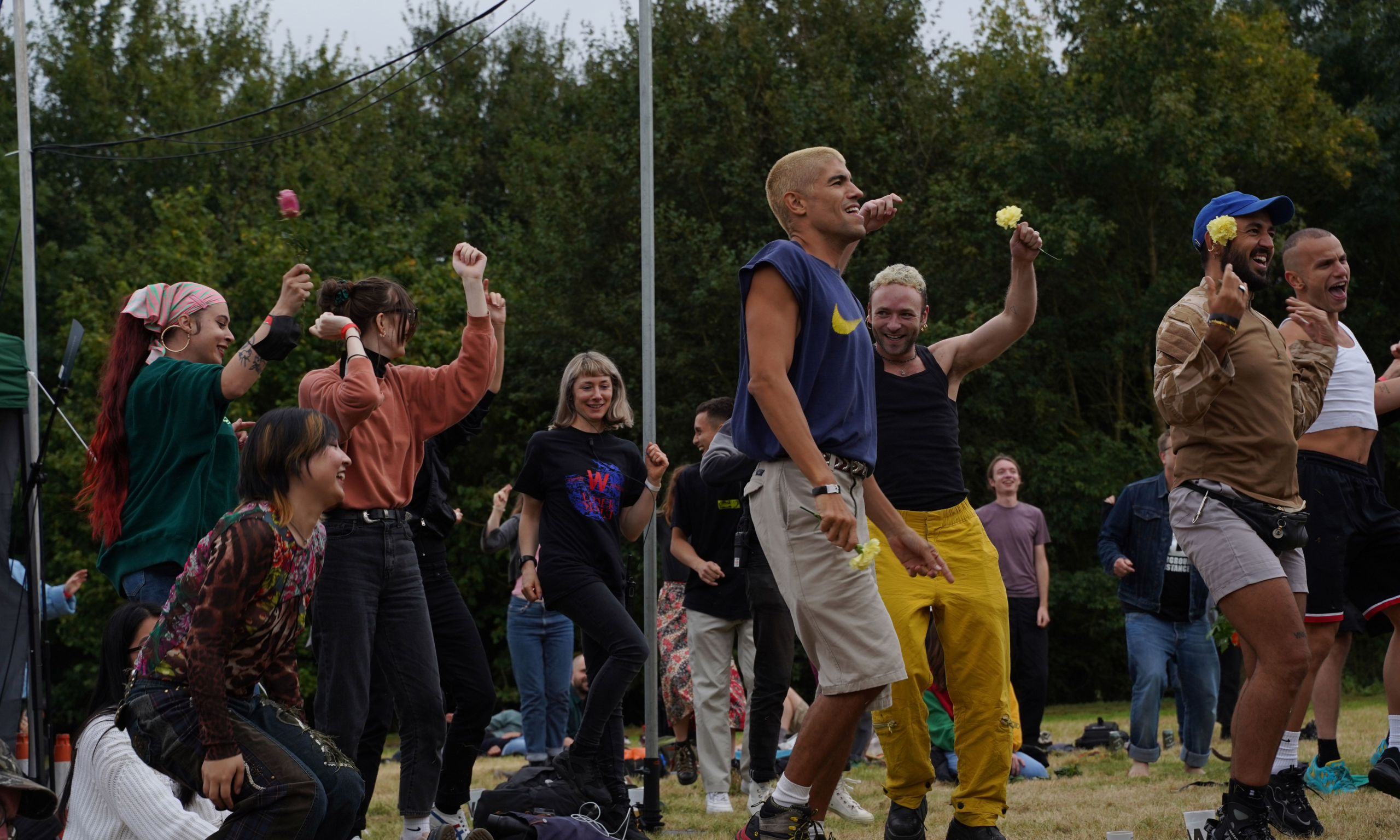Wysing Arts Centre in Cambridgeshire (its annual festival, pictured) will receive £500,000 from Freelands Foundation. Photo: Chloe Page
An ambitious new artist residency programme placing Black and Asian artists at institutions across the UK will be funded by the Freelands Foundation. The charitable arts organisation was founded by Elisabeth Murdoch, the daughter of the media mogul Rupert Murdoch, in 2015. Under the plan, the UAL Decolonising Arts Institute (University of the Arts London) will receive £300,000 toward its three-year 20/20 programme, whereby 20 artists of colour will be based at organisations across the UK producing new commissions for permanent collections.
Project partners include the Hepworth Wakefield, the Box in Plymouth, Mima in Middlesbrough, Kelvingrove Art Gallery and Museum in Glasgow, and Kettle’s Yard in Cambridge.
“The 20/20 programme will embed Black and [Asian] artists permanently in our public collections, expand understandings of why and for whom collections exist, and reshape the landscape of commissioning, collecting and exhibiting in Britain,” says the foundation. “Following an extraordinary 18 months, 20/20 is a response to urgent calls for art world actions to follow words and gestures, and move ‘Beyond the Black Square’ [shown on Instagram last year],” says susan pui san lok, the director of the UAL Decolonising Arts Institute.
Meanwhile, Wysing Arts Centre in Cambridgeshire will receive £500,000 from the same foundation for a ten-year artist development programme known as the Syllabus. “Ten artists from diverse and under-represented backgrounds will undertake an ambitious programme delivered across a nationwide network of eight art organisations," says a press statement.
Over a decade, the programme will incorporate mentoring and “peer networking”, enabling artists from low-income backgrounds and ethnic minority groups to establish themselves in the culture sector.
The artist John Akomfrah is on the Freelands Foundation diversity panel that reviewed the proposals for both projects; other members include Melanie Keen, the director of the Wellcome Collection, and the artist Hardeep Pandhal.
The UK advocacy group the Museums Association (MA), has also issued guidance supporting decolonisation in museums, covering areas such as collaboration, collections, and workforce issues.
The document outlines “decolonising principles”, stressing that “decolonising museums is an ethical commitment”. Under the heading “challenge neutrality”, for instance, the guidance states that “museums are not neutral and never have been. The notion of neutrality maintains power and silences the experiences and histories of many.”
The MA has also launched an accompanying Decolonisation Confidence and Skills programme with funding from a consortium of four organisations: Art Fund, the John Ellerman Foundation, the Esmée Fairbairn Foundation and the Paul Hamlyn Foundation.

